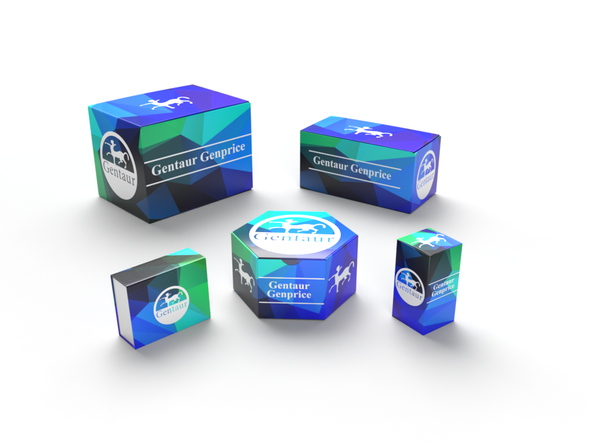Description
Mouse Anti-Human Epiregulin Antibody | 101-M394 | Gentaur UK, US & Europe Distribution
Species: Anti-Human
Host / biotech: Mouse
Comment: N/A
Label: N/A
Clone / Antibody feature: (#12Y4)
Subcategory: Monoclonal Antibody
Category: Antibody
Synonyms: EREG; ER
Isotype: IgG1
Application: WB
Detection Range: N/A
Species Reactivity/Cross reactivity: Human
Antigen: recombinant human Epiregulin
Description: Epiregulin is a member of the EGF family of growth factors which includes, among others, epidermal growth factor (EGF), transforming growth factor (TGF)alpha, amphiregulin (ARG), HB (heparinbinding) EGF, betacellulin, and the various heregulins. All EGF family members are synthesized as transmembrane precursors and are converted to soluble forms by proteolytic cleavage. Epiregulin was originally purified from the mouse fibroblast-derived tumor cell line NIH3T3/T7 . The human epiregulin cDNA encodes a 169 amino acid (aa) residues transmembrane precursor with a 29 aa signal peptide, a 21 aa transmembrane domain and a 21 aa cytoplasmic domain. The putative soluble mature Epiregulin comprising the EGFlike domain (aa residues 64-104) is formed by proteolytic removal of the propeptide regions. There is 85% aa sequence homology between human and mouse epiregulins. Epiregulin is expressed primarily in the placenta and macrophages. High level expression has also been detected in various carcinomas. Epiregulin specifically binds EGFR (ErbB1) and ErbB4 but not ErbB2 and ErbB3. It activates the homodimers of both ErbB1 and ErbB4. In addition, epiregulin can also activate all possible heteromeric combinations of the four ErbB family members. Epiregulin stimulates the proliferation of fibroblasts, smooth muscle cells and hepatocytes. It has been shown to be an autocrine growth factor for epidermal keratinocytes as well as mesangial cells.
Purity Confirmation: N/A
Endotoxin: N/A
Formulation: lyophilized
Storage Handling Stability: Lyophilized samples are stable for 2 years from date of receipt when stored at -20°C. Reconstituted antibody can be aliquoted and stored frozen at < -20°C for at least six months without detectable loss of activity.
Reconstituation: Centrifuge vial prior to opening. Reconstitute the antibody with 500 µl sterile PBS and the final concentration is 200 µg/ml.
Molecular Weight: N/A
Lenght (aa): N/A
Protein Sequence: N/A
NCBI Gene ID: 2069






